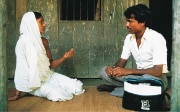Violent conflicts often aggravate the existing gender inequalities but do not affect women and men in the same way: while men are at higher risk of being killed or arrested as a direct consequence of armed conflict, women and girls are more likely to face sexual and gender-based violence, social exclusion and restrictions on their mobility (cultural or security related), which negatively impacts their access to vital assistance, education or employment. Gender dimensions have therefore to be taken into account in all aspects of implementation of the Swiss Cooperation Programme in order to address the different gender needs and work towards more long-term gender equality. Gender mainstreaming includes: the institutional level, such as equal opportunities for recruitments and gender training; a gender-analysis based on gender-disaggregated data at the outset of interventions; selecting, funding and designing gender-sensitive programmes that have gender-specific outcomes and indicators; supporting gender-specific interventions in case women or men face particular discrimination; and promoting men and women’s participation in project design, decision-making and implementation.

